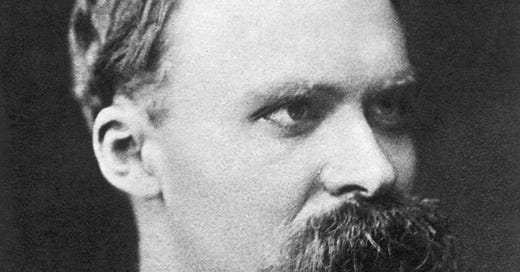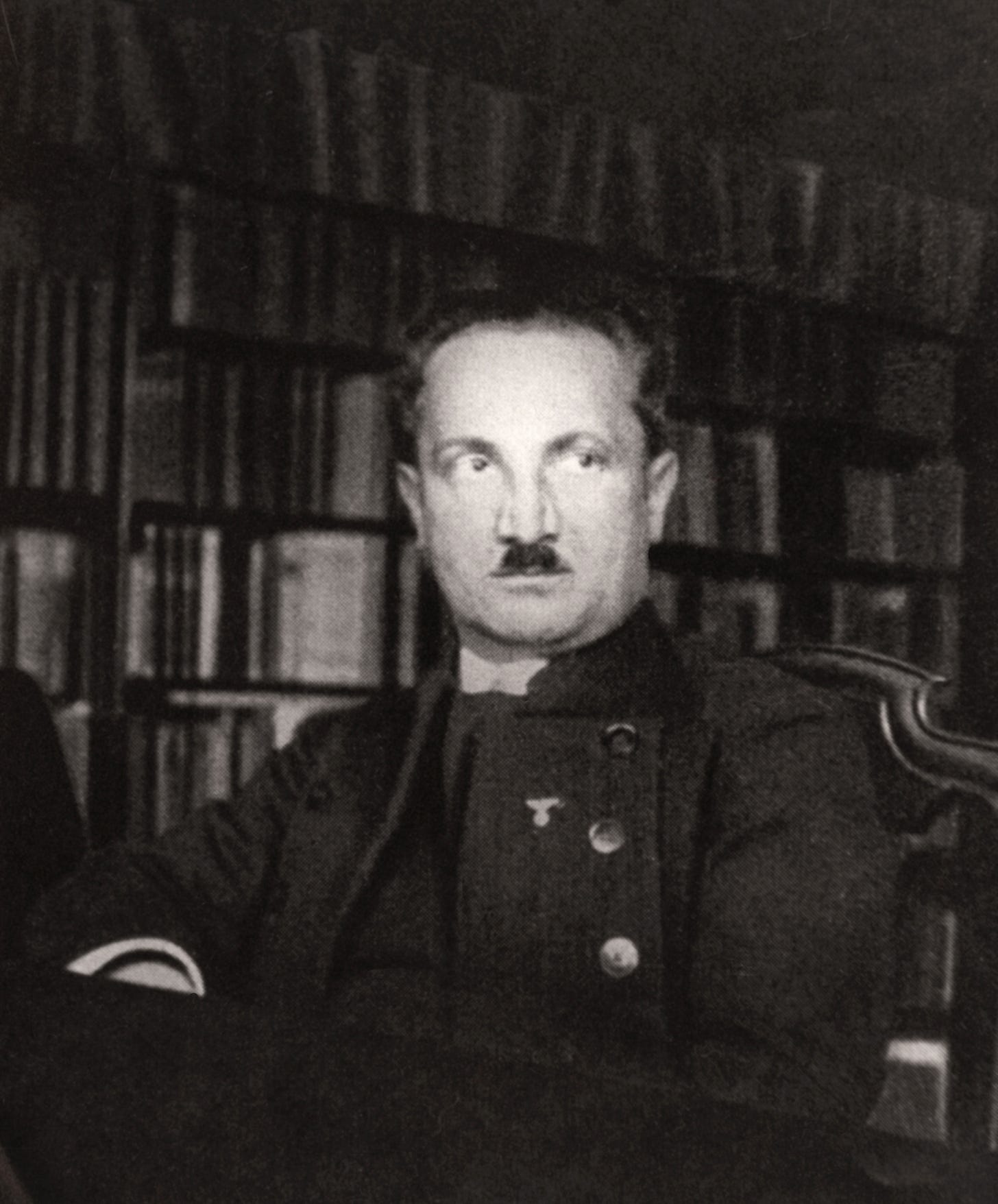Philosophy and the Far Right—1
Why did my Straussian education make me a political moderate when today it sometimes leads others to embrace anti-liberal extremism?
This post and a follow-up, which should appear within the next week, are the first two entries in what I hope will be an occasional series devoted to developments in the Straussian world. The first few posts in this series will be devoted to a handful of Ph.D. students from Straussian graduate programs who have gone on to embrace the politics of the far right.
Regular readers know how important Leo Strauss is to me. They also know I don’t think much of the faction of the Straussian world that gets the lion’s share of attention from journalists these days. That’s the faction that descends from Harry Jaffa, who studied with Strauss at the New School for Social Research in the 1940s, and is mainly found at the Claremont Institute in the Los Angeles suburbs and at Hillsdale College in rural Michigan (and Washington D.C.). This faction has always been more political, right-wing, and America-focused than the Straussians I studied with at Michigan State University in the 1990s.
Until 2016, I wouldn’t have predicted the Claremonsters would become apologists for Donald Trump, with some members of the sect seeking to provide him with intellectual justification for an attempted self-coup. But in retrospect, it’s not hugely surprising, given that, as I wrote in a previous post, “their behavior is precisely what one would expect to see from true-believing, unskeptical moralists when they encounter what they take to be evidence that virtue (as they understand it) is on the verge of some final defeat in the political world.”
But this post isn’t about the Claremont Straussians. (For more on them, see the exhaustive essays in The Bulwark by my Niskanen Center colleague Laura Field, and the highly informative New York Times profile of the Claremont Institute’s central figures by journalist Elisabeth Zerofsky.) This post is about something I actually find more disturbing—something that’s happened in recent years within the very different Straussian world in which I received my graduate education. This development raises troubling and vexing questions about the interaction between radical philosophical ideas and the political contexts in which they are transmitted and received.
The Importance and Limits of Politics
The thing I loved about studying with Straussians is that they read philosophy books as if they were sacred scripture. I don’t mean that my teachers literally deified the men who wrote these texts. But they did take their writings very, very seriously—as potentially containing the final truth about the “the whole” (by which they meant the comprehensive truth about the most fundamental human questions, including the existence or non-existence of God(s), the character of the cosmos/natural order, and humanity’s place within it).
This made the Straussian approach to reading old books categorically different than the way intellectual historians read them, as expressing the outlook of a particular time and place in the past. Instead, we were taught to read philosophers as if they were our contemporaries speaking to us about how to think and live within our own world. Straussians were also distinctive in treating the political views espoused by the greatest minds as the key to unlocking their deepest insights into the human condition.
But this raised a potential difficulty. The ancient philosophers considered democracy a fatally flawed form of government and denied human equality. Machiavelli advocated all kinds of political nastiness. Nietzsche valorized cruelty and encouraged his readers to break free from good and evil. Heidegger was an unrepentant Nazi. You get the idea. To treat these writers as possible sources of timeless political, moral, and metaphysical truths was to risk encouraging students to embrace dangerous ideas.
Yet it never seemed to happen—at least back when I was in grad school. I took seminars on Plato’s Gorgias, Nietzsche’s Zarathustra, Heidegger’s Being and Time, and plenty of other radical books. But I never got the impression that my peers and I were being groomed to embrace the political extremism we encountered in these texts.
That’s because the Straussian insistence on deferring to the wisdom of the great philosophers was combined with a special reverence for Socrates, especially as he is portrayed in Plato’s dialogues—and above all in the Republic. And the political lesson of the Republic, according to my Straussian teachers, is that it’s foolish to seek complete fulfillment in politics. The impulse to do so is the result of a common confusion that philosophy can help to dispel, directing political idealists and cynics alike away from a life of political engagement. Socrates achieves this with the character of Glaucon in the Republic—giving him an education in the futility of seeking the good in politics.
That’s an absurdly truncated summary of a long, involved, and (to my mind) persuasive argument. But it helps to explain why encountering political extremism in the writings of other thinkers tended to produce an indifferent shrug of the shoulders rather than enthusiastic cheers among my peers and I. There’s obviously a lot to learn here, we would conclude. But unfortunately this thinker failed to reflect as deeply as Plato’s Socrates did on the limits of politics and so ended up making some foolish mistakes.
Reading Political Philosophy at the End of History
The same attitude of political skepticism also came to inform the way I looked at the contemporary world. It was the mid-1990s. The American-led West had recently defeated Soviet communism in the Cold War. History might not have ended outright, as semi-Straussian Francis Fukuyama had suggested, but there didn’t seem to be many radical alternatives to liberal democracy on the horizon. And this was a very good thing. Liberalism might not be the best form of government in some abstract sense, but it certainly seemed better than any of the available modern alternatives—not least because it protected a sphere of freedom within which people could learn, practice, and teach philosophy.
In this respect, the deflationary Socratic lessons my teachers discerned in Plato’s Republic were reinforced by what we saw going on in the world around us. The limits of politics seemed obvious at a time when most of the political disagreements were over whether to raise or cut taxes by a few percentage points, add or remove a few government regulations, or be more or less aggressive in enforcing the UN-imposed no-fly zones over northern and southern Iraq. Those questions were politically necessary and so had their place, but they seemed to many of us like trivialities.
One of my teachers once somewhat ironically described politics as babysitting writ large—an activity too insignificant to occupy the mind of a serious human being. Around the time I defended my dissertation (in 1998), that sounded reasonable, or at least plausible, to me. Which doesn’t mean all or even most of my peers ended up perched atop Mt. Olympus, gazing down in bemusement at the folly and futility of their fellow citizens’ political commitments. Many were and still are politically engaged, just as some graduates of other Straussian programs ended up moving to Washington to work for think tanks, media outlets, and elected officials aligned with the pre-Trump mainstream of the Republican Party.
Given that I’ve spent many of the intervening years writing about politics, I can’t say I fully accepted the philosophical critique of politics either. Yet it remains the case that my political commentary and analysis is usually undertaken in a spirit of moderation and ironic detachment. That even remains true in the present, when the stakes seem so much higher than they were in the immediate aftermath of the Cold War.
An Alternative Path
But then how should we understand where Costin Alamariu (also known as Bronze Age Pervert), Darren Beattie, Michael Millerman, and Greg Johnson have ended up? All four studied with Straussians who were teaching at the time I was working on my Ph.D. at MSU, and all four have ended up becoming leading voices on the antiliberal far right.
I think very highly of the Straussians these four studied with. They are accomplished and responsible teachers who train graduate students in much the same way I was trained. I have learned from their books and articles and wouldn’t hesitate to return to them in the future. They have nothing to do with Claremont’s distinctive political obsessions. They are either appalled by or dismissive of Donald Trump and what he represents in our politics.
Yet four of their students have come to treat the most politically radical passages in Nietzsche, Heidegger, Carl Schmitt, Aleksandr Dugin, and other far-right thinkers—the passages I used to dismiss as insufficiently philosophical—as the ones that provide the surest guidance for practical politics. I have no reason to think anything significant has changed about how their teachers introduced these ideas to Alamariu, Beattie, Millerman, and Johnson—and ample reason to suspect the way these four individuals received these ideas has been influenced in decisive ways by a political context that has changed dramatically since the mid-1990s.
And that raises important and troubling questions about the interaction between philosophical ideas and the political world in which they circulate and are passed on.
Part 2 of this post will introduce in greater detail the four figures listed above and reflect on the theoretical and practical sources of their political extremism.







So I’ve been wondering lately how much Heidegger has trickled down into right wing evangelical circles. Al Mohler, the president of Southern Baptist Theological Seminary, can smell a “Marxist” from two leagues away, even upwind. But I’m wondering how much of stuff like Francis Schaefer or Rushdoony is really just Heidegger.
And I wonder how much that stuff has impacted folks like Rod Dreher too. He has a post today at TAC about the end times stuff again. I’m not a Heidegger scholar, but it seems to me he and Nietzsche shared some view that modernity would inherently collapse on itself due to moral decay (although ironically Nietzsche attributed this in part to Christianity.) This impending eschatological disaster seems firmly imprinted into a lot on the right.
On Socrates, I always thought Polemarchus was right, that friendship was the highest good. My best paper I wrote for Dr. Lawler ran with this and connected it to Aristotle’s idea from the Ethics that friendship was the highest good, and then to Thomas Aquinas where I argued that love of - or friendship with God - was the highest form of that good.
Great series Damon. Valuable series I've shared with my grad students. I guess the only remarks I'd want to qualify are those which suggest that Nietzsche and Heidegger themselves just somehow include immoderate passages, which could suggest they don't think such passages are not the inferential consequences of their deep positions. If Nietzsche eg advocates cruelty and even euthanasia for the sick (Twilight 36), or elimination of the misratenen (eg AC 2, many passages in KSA XI-XIV) if is because he wants to think radically through what an overcoming of Judaeochristian morality will take--the withdrawal of any sense of obligation to these folk, in the name of "the enormous energy of greatness". We need to get students to ask why they are attracted to radically antiliberal positions, and also what they read when they read these passages. Postmodernist Nietzscheans seem to almost literally read over all of this, and then criticise people who remind them that it is there in black and white, as if they were "cherry picking" (Kaufmann's word, which has stuck and shut down too many debates and questioning students). The result is that these thinkers are taught as benign figures, in ways which fails to confront that they were dynamitic, and wanted to be so. That's the only criticism I'd make, and it is perhaps predicated on a strong reading of certain sentences here only. Keep up the excellent work.